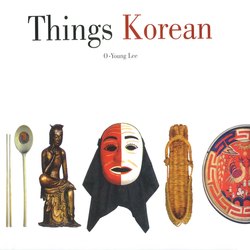Читать книгу Things Korean - O-Young Lee - Страница 10
На сайте Литреса книга снята с продажи.
ОглавлениеScissors and Their Country Cousin
Kawi
Among all our utensils is there any more familiar to us than scissors? There is not a household without a pair. East or West, they are one of those utensils most commonly unearthed from ancient burial sites.
Scissors, however, have not been blessed with a positive image. Designed for cutting things, these two blades using the awesome power of leverage both look and play the role of the villain. In that world of the sewing basket inhabited by the thread, needle and scissors, scissors, with their nature so different from the needle and thread lead an alienated and lonesome existence.
That figure of speech which has the thread following the needle is often used to signify the inseparable relationship of a loving couple, but it also shows the capacity of the needle and thread to unite that which is fallen asunder. The needle sutures the wounds which clothes receive in their much abused existence, and it mends new life into them when they seem to be on their last leg. The thread incorporates the nature of continuity. That is why parents like to think that when their baby, at that special celebration of his first birthday, happens to reach for the spool of thread (placed conveniently close to him for that very reason), he is guaranteed a long life.
But scissors cut things which are whole, and sever those which are joined together. Scissors signify to us separation, severance and elimination.
To the writer, scissors are the most fearsome of all our devices. In Korean we say censored writing has been scissored. In addition to their figurative role as the greatest enemy of the freedom of expression, in the West scissors are used as a simile for plagiarism. Imagine one writer scissoring out a useful part of another's writing, then fitting it into his own. Scissors, not the pen, plagiarize. And so we have the true story of how, on the opening night of a play by the nineteenth-century writer Alexander Dumas, the author's rivals sent him a pair of scissors instead of the usual bouquet of flowers. (Wherefore Dumas announced to his audience, "Anyone who thinks he can write a play like this can have these scissors!", to which the audience responded delightedly with a vindicating round of applause.)
In Korean, we refer to the negative mark X as scissors, not only because of the shared meaning of the two, but also because of the strong resemblance between them in form.
There is another, happier image of scissors to be found in their country cousin, the shears of the taffy man. Clanking his huge shears, he makes the rounds of the neighborhood with his white twists and tan slabs, pieces of which he exchanges with the kids for whatever discarded goods they can scrounge for him. Those shears with their dull, loose blades do not look like they could cut a thing, and, indeed, can not. The taffy man long ago scissored the scissoring function out of these emasculated scissors, since he did not use them for their original function of cutting but simply to help sound his arrival. In that transformation from severing to serving, scissors were transformed from the role of villain to that of the much loved hero in children's tales and childhood memories.
Both scissors and shears work on the principle of leverage, but the taffy man's use of leverage has nothing to do with force. When the shears' lever-like blades meet, a lyrical sound, not destructive force, is produced. Those glinting blades of scissors with exact fit could never produce such a welcome sound as the jangling clank of the taffy man's shears. Only the loose, amiable blades of this artless and guilelessly dull work of gray steel can. Shears do not sever, they gather the children from around the neighborhood, unite like thread and needle.
The taffy man is no longer to be seen in the big cities these days. But still we hear the genial clank of his shears in our dreams.
It is not the horrifying quiet snip of scissors that you might hear in one of those dreams which Freud tells us originate in some subliminal castration complex. It is rather a sound which recalls the warm affection the taffy man stuffed into the extra chunks he always gave us.
